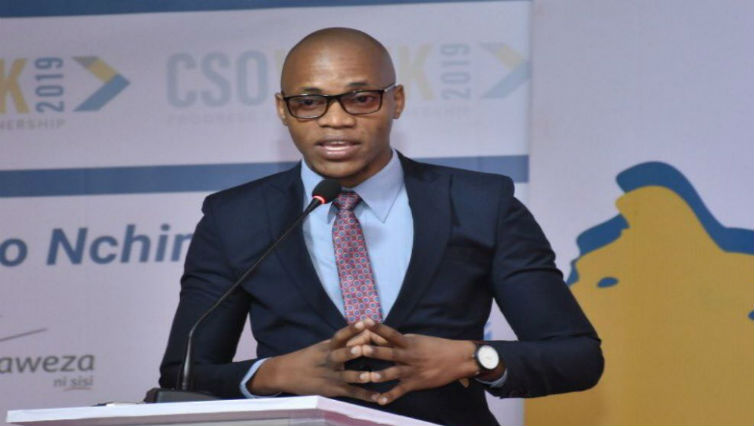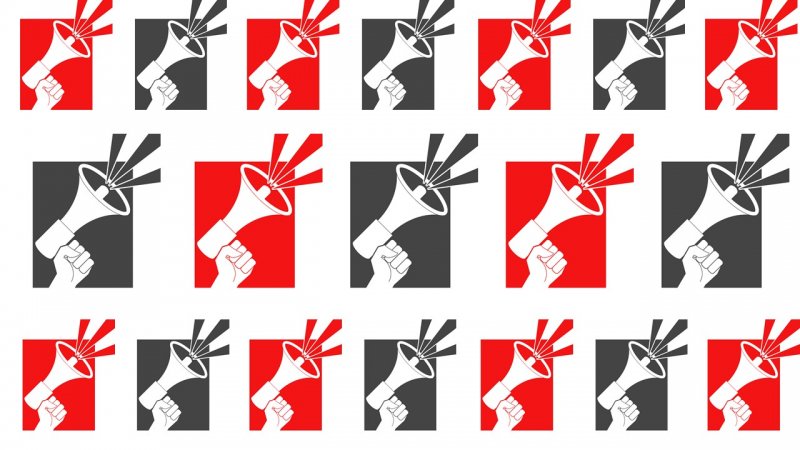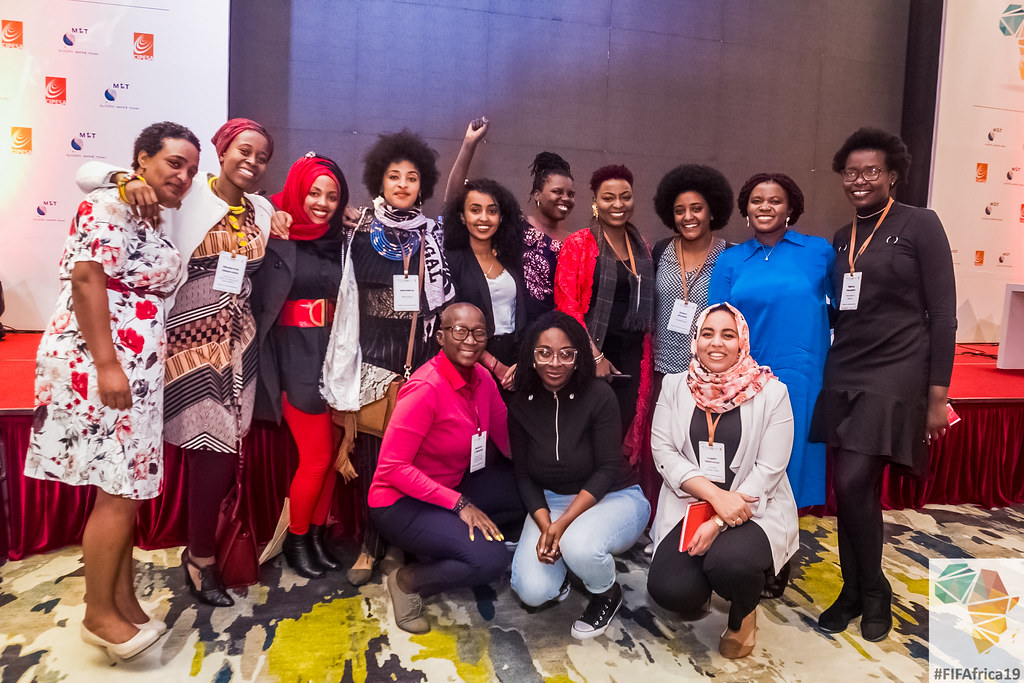Par Simone Toussi |
Le 5 décembre 2019, le président du Mali a promulgué la loi n° 2019-056 portant Répression de la Cybercriminalité. Bien qu’opportune et pertinente, certaines de ses dispositions constituent des menaces potentielles à la vie privée et la liberté d’expression en ligne, en particulier, compte tenu des défaillances démocratiques du Mali et de son faible classement en matière de liberté de la presse.
La nouvelle loi s’applique à « toute infraction commise au moyen des technologies de l’information et de la communication (TIC) en tout ou partie sur le territoire de la République du Mali, toute infraction commise dans le cyberespace et dont les effets se produisent sur le territoire national » (article 2). Elle fait partie d’un cadre législatif jugé nécessaire pour soutenir les réformes dans le secteur des TIC, conformément à la Déclaration de politique sectorielle des télécommunications du Mali, de l’année 2000.
Des atteintes à la vie privée à l’autoritarisme numérique
La Constitution du Mali garantit la confidentialité des communications en vertu de l’article 6, une disposition qui est renforcée par l’article 5 de la loi portant protection des données à caractère personnel de 2013 l’article 1er de la loi régissant les télécommunications de 1999. La loi sur la cybercriminalité est malheureusement en conflit avec ces prédispositions en faveur du droit à la vie privée.
Les articles 74 à 78 de la loi sur la cybercriminalité autorisent la perquisition et la saisie informatique de données dans les procédures d’enquêtes criminelles. En outre, en vertu de l’article 75, les données peuvent être copiées et stockées lorsque « la saisie du support ne paraît pas appropriée ». La loi ne prévoit pas comment les données copiées doivent être stockées, traitées ou supprimées à l’issue des enquêtes. Cela sape le principe de protection des données énoncé dans l’article 7 de la loi sur la protection des données à caractère personnel – selon lequel les données à caractère personnel ne doivent être conservées que pour une période et un objectif précis.
De plus, les articles 83 à 86 suggèrent une surveillance en temps réel par l’interception des communications. Les prestataires de services sont tenus de coopérer avec les autorités, notamment en veillant à ce qu’ils disposent des moyens techniques nécessaires pour faciliter l’interception des communications. Ces pouvoirs étendus doublent ceux qui sont accordés aux autorités en vertu de l’article 4 de la loi sur les télécommunications. Ce dernier stipule : « Lorsque la sécurité publique ou la défense du territoire du Mali l’exige, le gouvernement peut, pour une durée limitée, réquisitionner tous les réseaux de télécommunications établis sur le territoire du Mali, ainsi que les équipements qui y sont connectés et / ou interdire la fourniture de services de télécommunications. » Cet article a été utilisé par le passé, lorsque le gouvernement a ordonné des perturbations de réseaux sociaux en 2016 lors des manifestations publiques, et plus récemment, une coupure d’Internet lors des élections de 2018.
En outre, les prestataires de services de communication sont tenus de mettre en place des mécanismes de contrôle des systèmes d’activités illégales potentielles. Tout refus d’informer les autorités de ces activités illégales est passible d’une peine de prison allant de six mois à deux ans, une amende de 500 000 à 2 000 000 francs CFA (830 à 3 318 dollars américain – USD) ou les deux (article 25).
Des alertes pour la liberté d’expression
Bien que la constitution du Mali garantisse la liberté d’expression et d’opinion (article 4), la loi portant régime de la presse et délit de presse (2000) est vague car elle ne garantit pas explicitement la liberté de la presse ou le pluralisme médiatique, ni ne définit les délits de presse. Elle ne contient pas non plus des dispositions sur les médias en ligne. Cela constitue un vide qui précède la loi sur la répression de la cybercriminalité qui, pour sa part, contient des dispositions qui affectent directement la liberté d’expression et d’opinion.
Les articles 20 et 21 de la nouvelle loi punissent les menaces et les insultes faites par le biais d’un système d’information, avec des sanctions allant de six mois à 10 ans d’emprisonnement, et une amende de 1 000 000 à 10 000 000 CFA (1 680 à 16 800 USD), ou les deux. Sans définir ni clairement détailler les éléments constitutifs de la « menace » ou de l ‘ « insulte », ces dispositions sont sujettes à des interprétations pouvant entraver la liberté d’expression. Cela est d’autant plus critique que ces termes ne sont pas non plus définis par la loi portant régime de presse et délit de presse, dans son article 33 sur l’incitation et l’article 38 sur la diffamation.
De plus, les articles 55 et 56 condamnent la « diffusion publique » de « tous imprimés, tous écrits, dessins, affiches, gravures, peintures, photographies, films ou clichés, matrices ou reproductions photographiques, emblèmes, tous objets ou images contraires aux bonnes mœurs. » Les sanctions correspondantes vont de six mois à sept ans d’emprisonnement, une amende de 500 000 à 10 000 000 CFA (840 à 16 800 USD), ou les deux.
L’article 54 de la loi sur la cybercriminalité stipule que les infractions de presse, commises par le biais des technologies de l’information et de la communication, à l’exception de celles commises par la presse sur Internet, sont punies par les peines de droit commun ». Étant donné que la loi sur la presse ne comporte pas de disposition pour la presse en ligne, la distinction entre les délits de presse via les TIC et les délits de presse via internet n’est pas claire. En outre, il y a un manque de précision quant à déterminer si une infraction relève de la loi sur la cybercriminalité, du droit commun ou de la loi sur la presse.
L’article 23 prévoit une amende de 200 000 à 2 000 000 CFA (de 332 à 3 318 dollars américain), une peine d’emprisonnement de six mois à un an, ou les deux, pour les faux signalements d’activités ou contenus illicites, « dans le but d’en obtenir le retrait ou d’en faire cesser la diffusion par un prestataire de services de communications au public par voie électronique ». Cependant, les activités et contenus considérés comme illicites et donc soumis à dénonciation, ne sont pas définis par la loi.
Les mesures à prendre
La loi est bien orientée pour garantir une utilisation sûre et sécurisée des TIC au Mali. Elle entre cependant en vigueur dans un contexte fragile. Les dispositions relatives au traitement des données dans les procédures d’enquêtes criminelles présentent un risque important pour l’intégrité, la sécurité et la confidentialité des données personnelles. En outre, la loi impose une lourde charge aux intermédiaires de télécommunications pour suivre et surveiller l’activité du réseau, et tient ces intermédiaires responsables des actes de leurs clients. Les dispositions relatives aux délits de presse en ligne sont incompatibles avec la législation sur les médias à l’ère du numérique. La nouvelle loi et les lois connexes existantes nécessitent donc des révisions pour sauvegarder et faire respecter les garanties constitutionnelles de la liberté d’expression et de la vie privée, en ligne et hors ligne.
Advancing Collaborations in Strategic Litigation for Digital Rights in East Africa
By Edrine Wanyama |
Strategic litigation has gained recognition as a tool for pushing back against restrictions on rights to privacy, access to information and freedom of expression, assembly and association in the digital sphere in Africa. Notable cases have been recorded in Burundi, Kenya, Tanzania, Uganda, Cameroon, Gambia, Zimbabwe, and Sudan.
However, litigation for digital rights remains under-utilised across the continent due to lack of effective collaboration between actors such as lawyers, activists, academia, civil society organisations and other technical experts.
At the 2019 Forum on Internet Freedom in Africa (FIFAfrica19) in Addis Ababa, Ethiopia, a workshop was hosted to promote best practices for more effective collaboration across disciplinary silos in digital rights litigation. The session also aimed to raise the visibility of the outcomes and lessons learned from three recent digital rights cases and campaigns in Kenya, Tanzania and Uganda, alongside global experiences by Access Now, the Electronic Frontier Foundation (EFF) and the Media Legal Defense Initiative (MLDI), so as to inform future intervention. It was attended by 22 participants comprising of parliamentarians, lawyers, academics, journalists, digital rights activists, civil society actors and representatives of government agencies.
The workshop and case analysis were premised on the catalysts for collaboration which outline 12 principles in advancing digital rights campaigns using litigation.

Various issues emerged during the workshop and in many instances echoed the experiences of cases in East Africa and beyond. In his presentation, “Litigating Digital Rights and Online Freedom of Expression in East, West and Southern Africa”, Padraig Hughes from MLDI explored internet regulation and international human rights instruments provisions related to digital rights, including data protection and privacy, the right to be forgotten, encryption, anonymity and cybercrime. He noted that whereas countries across the world were party to many of the instruments, case law on internet regulation in Africa was not as advanced as in other continents. Indeed, a study of the case of The Bloggers Association of Kenya (BAKE) v Hon. Attorney General & Three Others in Kenya indicates that due to limited precedent and case law on strategic litigation in Africa, BAKE had to rely heavily on European Union case law as a reference point.
BAKE’s petition challenged the Computer and Misuse Act, 2018, stating that it violated, infringed and threatened fundamental freedoms protected in the Bill of Rights in the Constitution of Kenya, 2010. In May 2018, a judge granted interim conservatory orders, suspending 26 clauses in the Act. To-date, a hearing date is yet to be set for the case. However, the orders granted remain in force pending the hearing.
The EFF’s Corynne McSherryn presented collaborative cases which challenged border device search and seizures in the United States of America, as part of which border and pocket guides have been issued to help travellers in securing their digital data before travelling. The publicity and awareness approach of the guides is similar to that adopted in pushing back against a social media tax in Uganda by encouraging the use of Virtual Private Networks (VPNs). A case related to this pushback is the Cyber Law Initiative (U) Limited and Five Others Versus The Attorney General of Uganda and Two Others.
On July 2, 2018, Cyber Law Initiative (U) Limited and four individuals – Opio Daniel Bill, Baguma Moses, Okiror Emmanuel and Silver Kayondo – sued the Attorney General, the Uganda Communications Commission (UCC), and the Uganda Revenue Authority (URA) in the Constitutional Court over an amendment to the Excise and Duty Act. The amendment introduced a tax of Uganda Shillings (UGX) 200 (USD 0.05) per day in order to access Facebook, WhatsApp, Twitter, and Viber, among other social media platforms. The case relied heavily on print, broadcast and online media to raise public awareness and push back against the tax through encouraging use of Virtual Private Networks (VPNs). It is over a year since the case was filed and all relevant submissions have been tabled before court. However, a hearing date has not been fixed. Efforts to have the case hearing date fixed have included a petition to the Deputy Chief Justice with an annexation of over 400 signatures, to no avail.
Aaron Kiiza, part of the legal team on the Uganda social media tax case, noted that collaborative litigation remains a major challenge due to group dynamics and unforeseen circumstances. This was the case in Tanzania where three collaborators withdrew from Legal and Human Rights Center and Two Others v. The Minister for Information, Culture, Arts and Sports, the Tanzania Communications Regulatory Authority and the Attorney General, which demoralised the group and was deemed as the “starting point of defeat” in the case.
The Legal and Human Rights Centre, Media Council of Tanzania, Tanzania Media Women Association (TMWA), Jamii Media, Tanzania Human Rights Defenders Coalition (THRDC), and the Tanzania Editors Forum (TEF) filed a case in the High Court of Tanzania challenging enforcement of the Electronic and Postal Communications Act (EPOCA) (Online Content Regulations) of 2018. The applicants argued that the regulations were promulgated in excess of power, illegal, against the principles of natural justice, unreasonable, arbitrary and ambiguous. However, three applicants (Jamii Media, TAMWA and TEF), later withdrew from the case. TAMWA and TEF’s withdrawal from the case was attributed to waning interest, while that of Jamii Media was due to separate criminal proceedings against its Executive Director, which had already put a strain on the organisation’s operations.
On May 4, 2018, the Court issued a temporary injunction preventing the implementation of the Regulations which were to take effect the following day on May 5, 2018. However, the government of Tanzania appealed against the decision, and Court overturned the injunction and dismissed the case, with each party bearing its own costs.
Meanwhile, in the Zimbabwean case against the network disruption of January 2019, Kuda Hove from the Media Institution of Southern Africa (MISA) Zimbabwe observed that collaborative litigation sometimes leads to delays which can affect justice. In the Kenyan case, time constraints required BAKE to draft and file the petition, under certificate of urgency, with only two days left before the Computer Misuse and Cybercrimes Act, 2018 came into force. Hove noted that there is always the need to strengthen communications among parties and collaborators who may fail on their duties and obligations during the litigation.
Participants also highlighted the lack of digital rights knowledge, skills and competencies amongst judges and lawyers – a shared experience across all three cases studied. Resource constraints which affect evidence gathering are another shared challenge.
Furthermore, the slow nature of legal processes was acknowledged. The cases in East Africa have been fraught with setbacks, including case backlog and judiciary transfers leading to fatigue of both the legal counsel and the general public.
The workshop and case analysis were carried out as part of a CIPESA-MLDI project aimed at increasing the availability of information on digital rights cases in Africa and lessons learned to inform future intervention for effectiveness, creativity and resilience of cases. The documenting of the case studies was conducted by CIPESA in partnership with the Kenya ICT Action Network (KICTANet) and Tanzania Human Rights Defender’s Coalition (THRDC), and involved expert consultations, literature review and interviews.
Joint CSO Letter to United Nations and African Commission Special Rapporteurs on the arrest and detention of Tanzanian Human Rights Defender Tito Elia Magoti
Letter |
The Collaboration on International ICT Policy for East and Southern Africa (CIPESA) has joined 27 other organisations in submitting a public letter to the United Nations and African Commission Special Rapporteurs in the case of the arrest of Tanzanian human rights defender Tito Magoti.
The joint letter requests that the respective offices urgently intervene in the cases of human rights defenders and journalists in Tanzania, who are facing criminal prosecution for exercising their fundamental rights and urge the government to immediately drop these charges. It further urges that the state be reminded to ensure that all citizens, from the moment of their arrest for any crime, are afforded the full due process of the law without derogation.
See the letter here.
Hanging in the Balance: Online and Offline Freedom of the Press in Guinea
By Simone Toussi |
Guinea’s media landscape boasts over 70 media outlets including streaming media, radio, television and print media. Yet still, the country does not score highly on international press freedom indices – it is ranked 107 out of 180 countries in the 2019 World Press Freedom Index. Nonetheless, the country’s growing internet penetration from 0.4% in 2010 to 33% in 2018 is favourable for the free flow of information through online spaces such as blogs and social networks.
Given the rapid growth of Internet users – from 42,000 users in 2010 to four million users in 2019 – the internet is fast becoming a primary mode of accessing information for many people in the country. However, the government’s high-handed controls over traditional media are extending into the online sphere, evidenced by a series of arbitrary arrests and detentions, coupled with the persecution and judicial harassment of journalists and bloggers.
A continuing persecution of journalists and the press outlets
In August 2019, the Guinean government placed two journalists, Lynx FM talk show host Souleymane Diallo and Lynx FM CEO and journalist Boubacar Alghassimou Diallo, under judicial control. The two were accused of “complicity in disseminating data likely to disturb public safety”. The allegations stem from an interactive radio show, during which an auditor accused a Guinean official of embezzling military bonuses related to a mission in Northern Mali. Under judicial control, the two journalists are prohibited from travelling outside of Guinea’s capital Conakry without authorisation from a judge. They are also not allowed to host the radio show in question until further notice, and are required to appear in court three times per week. In the same month,, several press associations demonstrated against the state- led suffocation of the media.
Earlier in March 2019, Lansana Camara, a journalist with conackrylive.info, was summoned for “defamation by the press” after a complaint by the Ministry of Foreign Affairs and elements in the Guinean diaspora. Camara was placed in custody for a week on allegations of publishing an article undermining the Guinean government. The article (deleted following his arrest) reported an alleged diversion of two billion Guinean Francs (GNF), equivalent to USD 215,700, that had been budgeted for fuel for the Guinean Department of Foreign Affairs.
Martine Condé, the President of the High Authority of Communication (HAC) – the national independent media observer and regulator constituted under Law N° L/2010/002/CNT/ of June 22, 2010 – denounced Camara’s incarceration as a flagrant violation of the law on freedom of the press. A similar press freedom reprimand was issued by the Guinean Association of Online Press (AGUIPEL) back in June 2018 after the arrest and detention of Mamadou Saliou Diallo, founder of Nouveleteeguinee.com, on accusations of “defamation and slander” following a complaint by Cheick Sako, the Minister of Justice.
But the HAC does not always appear to act in the interests of media freedom. In 2017, the HAC took a decision to suspend a private radio station, Espace FM, for seven days, accusing it of disseminating “information likely to undermine the security of the nation, the morale of the armed forces and public order”. HAC’s decision was pursuant to articles 39 and 40 of Law N° L/2010/002/CNT/ of June 22, 2010 on freedom of the press which states: “The High Authority of Communication exercises a right of general control over public, private and community media […]. When the provisions of the law on communication are not respected, [it] can take the following measures: warning, notice of default, suspension, permanent withdrawal.” The same year, a dozen journalists were assaulted by law enforcement officers, with reports of destruction of equipment and torture.
Previously in 2016, the Guinean press was shaken by the assassination of El Hadj Mohamed Diallo, a journalist for the news website Guinee7.com, during a political rally of Guinea’s main opposition party, the Union of Democratic Forces of Guinea (UFDG). To-date, the case remains unsolved, despite investigations.
An inadequate and flouted legislative framework
The Guinean Constitution guarantees the right to freedom of expression, opinion, belief and thought, as well as freedom of the press as being inviolable, inalienable and imprescriptible. It also guarantees the right of access to public information. According to Article 7, everyone is free “to express, to manifest, to disseminate their ideas and opinions by speech, writing and image, […] to educate and inform themselves from sources that are accessible to all. Freedom of the press is guaranteed and protected. The creation of a press or media outlet for political, economic, social, cultural, sporting, recreational or scientific information is free. The right of access to public information is guaranteed to the citizen.”
However, there are a number of laws and policies that undermine the rights and freedoms guaranteed under the Constitution.
The Organic Law N ° 002/22/06/2010 on the Freedom of the Press enacted in 2010, sets the conditions for press freedom and the creation of a free and independent media in Guinea. Article 1 explicitly guarantees the freedom of “the written press, the online press, publishing, printing, bookstore, audiovisual, photography, cinema and all other forms of communication”. Offenses by the press or by any other means of communication are outlined under Articles 98-122. The only penalties provided for under the law, upon conviction, are the payment of a fine (the maximum being 20 million GNF, equivalent to USD 2,200), and the suspension or withdrawal of a media outlets’ license, with possibility of appeal before the Supreme Court.
There are no provisions for possible imprisonment of journalists. For instance, the law states that, “defamation, by one of the means set out in Article 98, against the courts, the military and paramilitary bodies, the constituted bodies and the public administrations, is punishable by a fine between 1,000,000 GNF and 5,000,000 GNF (USD 108-540).”
However, the press law and Penal Code (1998) conflict with each other on some press offences. Article 99 of the press law states that incitement to theft, murder, looting and offenses against the security of the state, with incitement followed by effect, is an offence and “perpetrators are punished as accomplices” in accordance with Articles 271 and 273 of the Penal Code. Article 271 of the Penal Code provides for prison sentences of between 10-20 years while Article 273 provides for penalties of imprisonment of 16 days to six months, a fine of 50,000 to 100,000 GNF ( (USD 5.5 to USD 10.9) or both. Notably, neither the press law nor the Penal Code are cited during the prosecution of journalists and bloggers. Instead, authorities rely on the cyber security law.
Law No. 037 on cyber security and the protection of personal data was adopted in July 2016, “to define the rules and mechanisms to fight against cybercrime in Guinea and thus create a favourable, conducive and secure environment in cyber space”. However, it is criticised as a threat to democracy and the digital rights of Guinean citizens because it legitimises online censorship and appears to criminalise whistle-blowing. Indeed, it is this law, and not the press law, which is currently being used to persecute journalists. According to Mohamed Traoré, former president of the Guinean Bar Association, the cyber security law is “unenforceable” because it has not been registered and published in the Official Gazette.
Meanwhile, the Bill on Access to Public Information was approved at the Council of Ministers on July 26, 2019, but there has been no further action on it since then. The lack of an access to information framework negatively impacts journalism, and transparency and accountability in governance. Passing the bill into law would facilitate reliable sources of information for investigative reporting, as well as research, and enhance civic participation.
Which way for a free press in Guinea?
Guinea’s press law reflects the political will to ensure a free, independent and pluralistic media in the country. Further, growing internet penetration has facilitated media diversity. However, persisting acts of repression and intimidation of journalists and bloggers are in total disregard of the Freedom of the Press Act which decriminalises press crimes, and online critics remain exposed to harsh penalties emanating from the cyber security law. In addition, the current inadequacy of the supporting legal framework, and stagnation of the bill on public access to information, limit media’s contribution to democratic governance. For a conducive freedom of expression environment to thrive in Guinea, it is imperative for the government to adopt an adequate legal framework and ensure its enforcement at all levels.
Silent No More! Africa’s Feminist Voices Are Growing Louder
By Juliet Nanfuka |
In much of Africa, feminism is often incorrectly considered a new movement. However, the reality is that feminism in the continent has played a role in shaping social and cultural relations, as well as policy and business development around the continent for decades. It is perhaps the increased vibrancy of feminist narratives in the African digital sphere that has led many to assume its novelty. The difference, however, is that the use of digital technologies has enabled the feminist voice to become more visible, even blatant, unapologetic in the push back against deep-seated patriarchal social mores.
Socialisation practices have seen girls and women expected to be “obedient”, with this often expected to be the order in the home, school, public spaces, workplace as well as online. Women who challenge this narrative have often been and continue to be branded negatively due to their rejection of this patriarchal order.
Watch FIFAfrica19 session: End of Politeness: African Feminist Movements and Digital Voice
According to the International Telecommunications Union (ITU), in all regions of the world, more men than women use the internet with the largest gender digital divide found in developing countries. This supports a 2015 research by the World Web Foundation which found that women in urban poor communities in countries such as Cameroon, Egypt, Kenya, Mozambique, Nigeria, and Uganda were 50% less likely to use the internet than men.
Sub-Saharan Africa continues to face inequalities which reflect the disparities present in basic access to education and finance, among other rights. These are compounded by the overt sexualisation of girls and women in media and popular culture, the exclusion of women from positions of power in numerous fields including in politics and business through to policy making and technology development.
While existing inequalities are rooted in tradition and social mores, many more are maintained by religious and educational institutions and in some instances reinforced by outdated national laws. These structures of inequality were among the issues discussed at the Forum on Internet Freedom in Africa (FIFAfrica) 2019 during sessions on feminism in Africa and women’s digital leadership. In one of the sessions, it was it was reported that in Malawi, women’s participation in protest can lead to persecution as was the case for Beatrice Mateyo, Executive Director of the Coalition for the Empowerment of Women and Girls (CEWAG) who was arrested and charged with “offensive behaviour to the modesty of a woman or intent to insult the modesty of a woman” in September 2017 for carrying placards during an anti-violence protest with the handwritten Chichewa words “kubadwa ndi nyini si tchimo” (to be born with a vagina is not a crime/sin) and “my pussy my pride”.
Panelists also noted the experiences of women in Sudan, who remain policed through Section 234 of the Penal Code and have been publicly flogged for “indecent dressing” and for “being vocal in public.” The section states, “Whoever to the annoyance of others does any obscene or indecent act in a public place, commits an offence and shall on conviction, be punished with imprisonment for a term not exceeding two years or with fine or with both.”
These various forms of repression against women have been transferred online, but it is also online that the pushback against them has gained momentum and increased amplification. There is increased local content generation on the systems that have fueled and shaped gender and sexual identity based inequalities. Further, online campaigns and movements such as the #TakeBackTheTech, #FeministInternet, #BringBackOurGirls and #MeToo have contributed to a shift in how feminism, gender roles and perceptions are understood and interpreted.
However, many feminist commentators and content creators online, particularly on social media, have been met with hostility in the form of trolling, personal attacks, threats of violence and more, often disproportionately to other users, as a consequence of expressing feminist views. Frequently attacked are women in politics, journalism, business, sexual minorities, as well as those making commentary on sexual minorities, and In some cases, unsuspecting girls and women whose images are shared online for ridicule and shaming.
While some have been forced offline as a result of the backlash, others have opted to face critics through practicing “radical rudeness” which challenges the established social expectations of women online and offline. The most recent notable case of radical rudeness is that of Ugandan academic Dr. Stella Nyanzi, whose campaign for improved service delivery resulted in her incarceration for insulting the president under the Computer Misuse Act, 2011.
At FIFAfrica, panelists called for increased solidarity in movements which support feminism and equality. Among the recommendations that emerged from the discussions is the need for increased advocacy on feminism and women’s rights online alongside more public initiated campaigns online and offline which amplify where policy and public positions should be with regards to the promotion of women’s rights. The widespread online amplification of issues is increasingly being used as a tool in advancing awareness on the need to maintain a feminist voice online. Panelists also noted the need for more use of popular culture including various mediums in art and design, literature, social media as well as poetry and theatre to highlight the shifting voice of African feminism. However, they noted the need to remain steadfast amidst the continued pushback against women’s rights and equality in society both online and offline.





